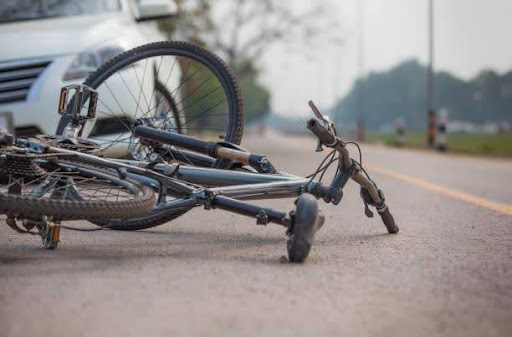Let’s face it—riding a bicycle through the sunny streets of Palm Beach should be a relaxing, refreshing experience. But accidents happen. One second you’re cruising along the oceanfront, and the next, you find yourself on the pavement, shaken and unsure of what to do next. If you’ve been involved in a Bicycle Accident Palm Beach, you’re not alone, and it’s completely okay to feel overwhelmed. Whether it’s a collision with a vehicle, a pedestrian, or an unexpected road hazard, knowing the right steps to take after the incident can help you protect your rights and start the recovery process.
So, let’s break it down—step by step—on what to do after a bicycle accident in Palm Beach.
1. Make Sure You’re Safe First
Your safety is the top priority. Before anything else, check yourself for injuries. If you’re seriously hurt, try not to move and wait for emergency help. If you’re able to move and it’s safe to do so, get yourself out of traffic to avoid further danger.
Even if you think you’re fine, it’s still important to take a moment to catch your breath and do a quick self-assessment. Adrenaline can mask pain, and injuries like concussions or internal trauma may not be immediately obvious.
2. Call the Authorities
No matter how minor the accident might seem, always contact the local police. Having an official report goes a long way later on. It creates a record of what happened, which can help clear up any confusion or disputes down the line.
When the police arrive, be honest but avoid placing blame—just state the facts. Also, make sure your side of the story is included in the report. If you’re feeling shaken up, that’s okay—ask the officer to take note of how you’re feeling, even if you don’t think you’re seriously injured.
3. Get Medical Attention
Don’t skip this step—even if you think you’re “okay.” Sometimes injuries show up hours or even days after the accident. A visit to a doctor or urgent care center ensures you get checked out properly, and it creates a medical record tied to the incident.
Medical records are incredibly helpful if you later need to explain how the accident affected your health. So, whether it’s a scraped elbow or a sore back, get it looked at and documented.
4. Collect Information on the Scene
If you’re physically able to, gather as much information as possible while you’re still at the scene. Here’s what to try and collect:
- Names and contact info of everyone involved (including drivers and any witnesses)
- Vehicle make, model, and license plate numbers
- Photos of the scene, your bicycle, any visible injuries, road signs, or hazards
- Location details (address, intersection, or landmarks)
You might feel rushed, but take your time. These details are easy to forget once you leave the scene.
5. Preserve Evidence
Your bike, helmet, clothes, and gear can all serve as evidence. Don’t fix anything or throw anything away. Even damaged gear can support your account of the crash, especially if it’s a case of driver negligence or poorly maintained roads.
Take photos of everything before any repairs are made. And if there were any pieces broken off at the scene, try to collect them.
6. Avoid Talking to the Other Party’s Representatives
After the accident, someone from the other party might reach out to you. Whether it’s a phone call or a visit, you don’t have to answer any questions or make any statements. Be polite, but firm. Say something like, “I’m not comfortable discussing this right now.”
Remember, anything you say can be used later in ways that might not be in your favor. So, until you’ve spoken to a professional who understands your rights, keep conversations to a minimum.
7. Document Everything
This step might not seem important now, but it will help immensely later on. Start a journal or notes app and record everything related to the accident:
- How you feel each day
- Any pain, emotional stress, or medical visits
- Days you missed from work
- Any limitations on your daily activities
This running log paints a clear picture of how the bicycle accident in Palm Beach has impacted your life.
8. Talk to a Legal Professional
Let’s be real—bicycle accidents can get complicated. Whether you’re dealing with a careless driver, unclear fault, or a city roadway issue, having a local Palm Beach professional on your side can help make sense of your options.
Someone familiar with bicycle laws and local regulations can guide you through next steps and help you protect your rights. You don’t have to go through it alone.
9. Take Care of Your Mental Health
Don’t ignore your mental well-being. Accidents can be traumatic, and it’s completely normal to feel anxious, angry, or unsettled afterward. Talk to someone—a friend, a counselor, or even a support group. Mental recovery is just as important as physical healing.
Palm Beach has some great resources for wellness and therapy. It’s worth looking into if the accident left you emotionally shaken.
10. Get Back on the Road When You’re Ready
When you’re ready, you’ll know. Don’t rush yourself. Getting back on your bike can be a big step, especially after a crash. Make sure your gear is in good shape, your body feels strong, and your mind is in the right place.
Start with short, easy rides in familiar areas. Confidence will build over time.
FAQs: Bicycle Accident Palm Beach
Q1: What if the driver who hit me left the scene?
That’s considered a hit-and-run, which is a serious offense in Florida. Report it immediately to the police and try to recall any details—license plate, vehicle color, or anything else.
Q2: Do I have to report every bicycle accident?
If there’s any injury or significant property damage, it’s smart to report it. A police report provides an official record that helps support your account of what happened.
Q3: Can I get help even if I wasn’t wearing a helmet?
Yes, you can still seek support and pursue your rights, though helmet use might be a factor in how your injuries are evaluated.
Q4: What if a pothole or road issue caused my crash?
You might have a case involving a government entity responsible for maintaining the road. These cases can be tricky but not impossible. It’s important to gather evidence and talk to someone familiar with these types of incidents.
Q5: How long do I have to take action after a bicycle accident in Palm Beach?
Florida generally allows a limited time frame to take legal action after an accident. That’s why it’s important to speak to someone as soon as you can to understand your rights and timeline.
Conclusion
Being in a bicycle accident in Palm Beach can shake up your routine, but it doesn’t have to take over your life. By taking a calm and clear approach—from seeking medical attention to documenting the incident and reaching out for help—you set yourself up for the best possible recovery. Remember, you’re not alone. Whether it’s a minor bump or a major collision, you have resources, rights, and support available to guide you forward. Take care of yourself, protect your peace of mind, and when you’re ready—get back to enjoying the ride.



